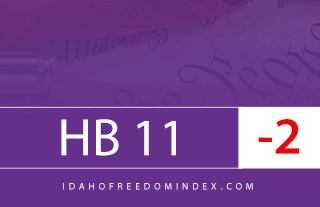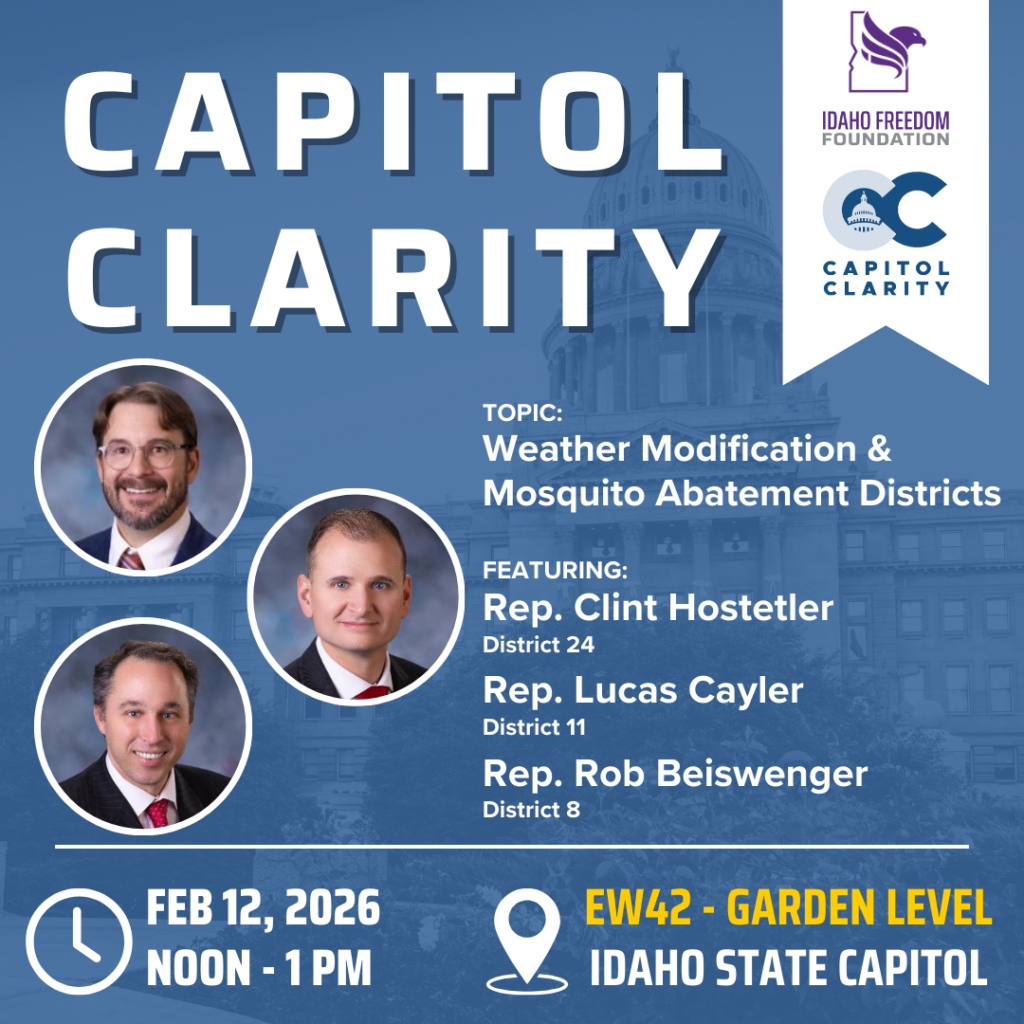


Bill Description: This bill requires optometrists to have additional training in order to practice in Idaho.
Rating: -2
Analyst’s Note: This bill was amended in the Senate, to improve the bill in a handful of minor ways. First, it extended the timeframe which individuals have before they must obtain this additional certification. Secondly, the bill would allow individuals who obtained their license prior to 1990 an exception from obtaining this new training. This would allow those who are practicing but are closer to retirement to finish their last years of practice without requiring this new certification.
Does it give government any new, additional, or expanded power to prohibit, restrict, or regulate activities in the free market? Conversely, does it eliminate or reduce government intervention in the market?
This bill would require optometrists to obtain additional certification in order to practice in the state of Idaho. “Effective January 1, 2019, every holder of a license to practice optometry must be certified to use therapeutic pharmaceutical agents as provided in section 54-1501(3), Idaho Code, and in rules of the board,” the bill says. “Any license under this chapter issued to a licensee who has not met the qualifications and been certified to use therapeutic pharmaceutical agents pursuant to section 54-1501(3), Idaho Code, shall expire on December 31, 2020, and shall not be subject to renewal or reinstatement.”
Under Idaho Code 54-1501(3), optometrists may use “diagnostic pharmaceutical agents and pharmaceutical agents for therapeutic use, for the measurement, improvement or development of any or all functions of human vision or the assistance of the powers of range of human vision or the determination of the accommodative or refractive status of human vision or the scope of its functions in general.” This bill would make certification in the use of therapeutic pharmaceuticals a prerequisite to obtaining a license. (-1)
On a positive note, H0011 eliminates the requirement that licensed professionals display their certification to practice in Idaho in a public area. (+1)
Does it increase barriers to entry into the market? Examples include occupational licensure, the minimum wage, and restrictions on home businesses. Conversely, does it remove barriers to entry into the market?
The Board of Optometry has been working for the last ten years to change licensing requirements. This latest move is controversial. At its May 2016 meeting, licensed optometrist Steven Iwasa told the board “the cost would be significant to obtain his therapeutics license, and asked that the board let him and others practice as they have been,” according to board minutes.
The new requirement could prevent an optometrist breaking into the profession in Idaho from doing their job. It could also make it more difficult for licensed professionals, as Iwasa told the board. Such a requirement might bar individuals from renewing their license, even if they had shown themselves for many years to be competent practitioners. (-1)
Does it directly or indirectly create or increase any taxes, fees, or other assessments? Conversely, does it eliminate or reduce any taxes, fees, or other assessments?
The additional requirements will increase the cost of doing business. This form of assessment would need to be absorbed by the practitioner or, more likely, passed on to the consumer. (-1)
Update: This analysis was updated 3/16 to reflect the amendment in the Senate.



